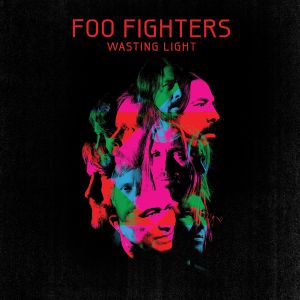The Democrats are in the White House, Britney Spears is at the top of the charts, Beavis and Butthead and Pee-Wee Herman air on television and independent artists are getting mainstream appeal.

The ‘90s are back, and with them they’ve brought a true Foo Fighters’ album.
“Wasting Light,” the band’s seventh album, marks a return to the grunge and alternative sound that fans and critics alike have not heard since 1997’s “The Colour and the Shape.”
In an interview with NME magazine, front man and guitarist Dave Grohl said, “After performing for 85,000 people [at Wembley Stadium], you wonder where you go from there.”
Grohl’s answer was to record and mix an album entirely in his garage.
“Wasting Light” was recorded on reel-to-reel tape machines, the same process Grohl himself used when creating the first Foo Fighters album. Abandoning modern day techniques even more, no computers were used whatsoever in the album’s recording or production processes.
All of these backward leaps pay off in what is ultimately one of the best-sounding rock albums of the last decade. Because the band was forced to play every song as best as possible, the album’s inherent honesty shines through with every crisp guitar chord and drum beat.
The songs themselves are some of the best the band has produced. Fans of Foo Fighters’ acoustic and lighter work, though, will have little to satisfy them. “Wasting Light” packs a punch, and never lets go.
Tracks such as “Bridges Burning” and “Miss the Misery” are hard rock songs with heavy drums and guitar from band members Taylor Hawkins and Chris Shiflett.
The heaviest song on the album, “White Limo,” has near-indecipherable, distorted vocals and pays homage to Grohl’s fondness for heavy metal.
Other musicians have no doubt influenced “Wasting Light.” “Arlandria” is a perfect blend of Foo Fighters material and that of Them Crooked Vultures, a side supergroup comprised of Grohl, Queens of the Stone Age guitarist and front man Josh Homme, and Led Zeppelin bassist John Paul Jones. The track “Dear Rosemary” features back-up vocals by Bob Mould, front man for punk rock bands Husker Du and Sugar.
Grohl not only honors his past in the punk rock scene, but, for the first time in Foo Fighters’ history, his years in Nirvana as well. Nirvana bassist Krist Noveselic is featured on the slower, darker track “I Should Have Known,” a song many have interpreted as Grohl’s pent-up anguish over the death of friend and former bandmate, Kurt Cobain.
“Wasting Light” succeeds on every level. Sonically, the album is stellar. The band’s old-school methods trump some of the best of modern rock and alternative.
Lyrically, Grohl pens some of his best-crafted material. “Wasting Light” is best summed up in the album’s final track, “Walk.” The Foo Fighters returned to their roots, and have learned to walk again.


